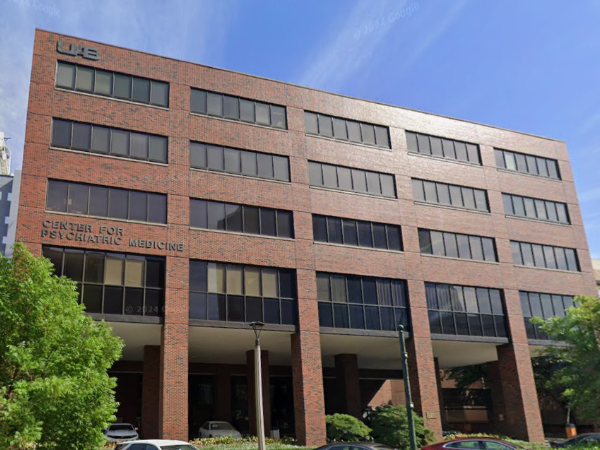 A new trio of clinics in the UAB Department of Psychiatry and Behavioral Neurobiology reflects the department’s dedication to innovation in mental health care. Known collectively as the TEAM Clinics (Treatment, Evaluation and multidisciplinary Approaches for Mental health Clinics), they focus on early intervention for younger individuals experiencing first episodes of psychosis, mood disorders, and substance use disorders—conditions that often emerge during adolescence and early adulthood.
A new trio of clinics in the UAB Department of Psychiatry and Behavioral Neurobiology reflects the department’s dedication to innovation in mental health care. Known collectively as the TEAM Clinics (Treatment, Evaluation and multidisciplinary Approaches for Mental health Clinics), they focus on early intervention for younger individuals experiencing first episodes of psychosis, mood disorders, and substance use disorders—conditions that often emerge during adolescence and early adulthood.
The beginnings of these clinics date back to 2011 with the launch of the first episode psychosis clinic, which features a team-based approach to care. Through the clinic, young patients experiencing their first episodes of psychosis have access to a comprehensive team of mental health experts, including both adult and child psychiatrists, a psychologist, and a social worker—all in one setting.
According to Adrienne C. Lahti, M.D., professor and chair, Heman E. Drummond Endowed Chair of Psychiatry in the Department of Psychiatry and Behavioral Neurobiology, who started the first episode psychosis clinic and co-directs with Blessing Falola, M.D., associate professor in the department, patients can be seen quickly for their initial assessments and as frequently as needed thereafter, especially during unstable periods.
“It was not only a team approach, but it was also adapted to the needs of the patient,” Lahti said.
In addition, the clinic focused on not only treating the patient but also educating family members about the patient’s condition, making families actively involved in the therapeutic process.
“With many patients accompanied by parents or guardians, clinicians prioritize helping families understand the diagnosis and treatment process,” Lahti said. “This not only supports the patient, but also strengthens the overall therapeutic environment.”
This approach proved highly effective, laying the foundation for expansion. Recognizing the need for broader early intervention, the program grew to include clinics for mood disorders (such as depression, bipolar, substance-induced mood disorder, and disruptive mood dysregulation disorder) and substance use disorders.
The mood disorders clinic opened in July 2024, followed by the substance use disorders clinic in January 2025. Now, all three clinics operate under the umbrella of the TEAM Clinics. Each clinic serves a specific age range: 12 to 40 for psychosis, and 16 to 30 for mood and substance use disorders. Similar to the first episode psychosis clinic, the mood disorders and substance use disorders clinics will be offering a comprehensive approach to care with psychologists and social workers involved in a patient’s care plan with a heightened focus on family education.
An educational aspect also comes into play with the providers themselves. Falola is the director of the Child and Adolescent Fellowship Program in the Department of Psychiatry and Behavioral Neurobiology and said that fellows in the program gain valuable experience as clinicians in the TEAM Clinics.
“The TEAM Clinics offer an exceptional educational experience for our fellows,” Falola said. “Practicing in these multidisciplinary, early intervention settings allows them to engage deeply with complex psychiatric conditions at a formative stage.”
While the concept of a first episode psychosis clinic is not new, Lahti said that having a combination of early intervention clinics for both mood disorders and substance use disorders is less common, making it a unique draw to UAB.
“Most mental illnesses begin in late adolescence or early adulthood,” Lahti reiterated. “Intervening early can significantly alter the course of a person’s life. It’s about nipping it in the bud and setting them on a better path to recovery.”
Patients seeking access to the TEAM Clinics can call 205-934-7008.